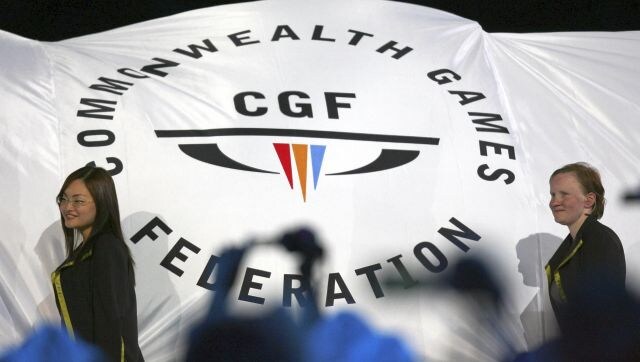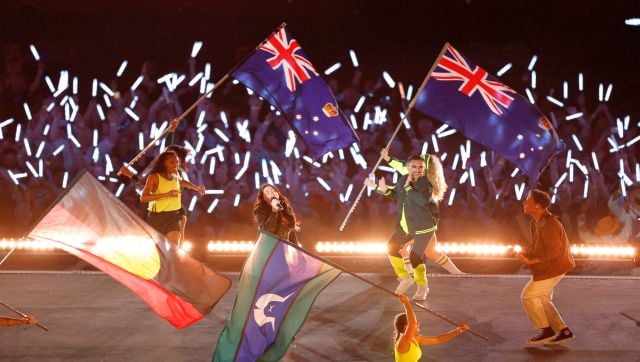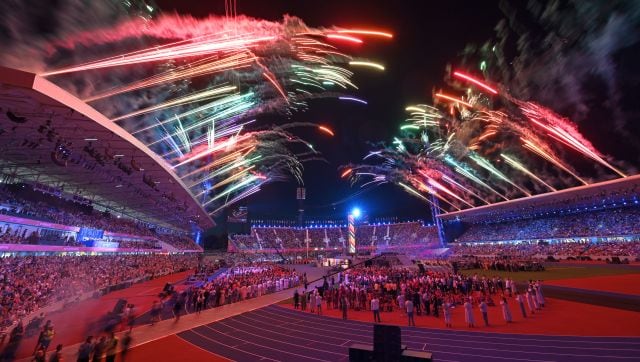Victoria cancels hosting 2026 Commonwealth Games: What happens next
Will the Commonwealth Games take place? That’s the question everyone is asking after Australia’s Victoria dropped a morning bombshell, announcing that has withdrawn as host because of a massive increase in the projected cost of staging the event.
For those who are unaware, Victorian Premier Daniel Andrews on Tuesday morning made the announcement that the state wouldn’t be able to bear the budget, which blew out three times the original estimates, and hence he was making the decision.
But what does this decision mean for the Games itself? What happens to the athletes participating? How has the world reacted to the news?
Related Articles

Commonwealth Games in limbo as Australia pulls out as 2026 host

Aryna Sabalenka wants shield from ‘hate’ after Victoria Azarenka booing at Wimbledon
We break it all down and give you the answers you are looking for.
Why will Victoria not host the Games?
Before we get to the matter of withdrawing as host of the Commonwealth Games – it was to be held from 17-29 March 2026 in Victorian cities of Geelong, Bendigo, Ballarat, Gippsland and Shepparton – here’s a bit about the history of how Victoria became the host.
The 2022 Games was to be hosted by Durban in South Africa and England’s Birmingham was to host it in 2026. However, Durban was stripped of the honour in 2017 after failing to meet key deadlines. It was then announced that Birmingham would host the 2022 event and the Commonwealth Games Federation (CGF) began to look for a 2026 host.
Victoria then announced an interest in hosting the event and was accorded the honour.
On Tuesday morning, the Victorian government then dropped the bombshell of not wanting to shoulder the increasing costs, with Premier Daniel Andrews saying, “What’s become clear is the cost of hosting these games is not the $2.6 billion which was allocated, it is at least $6 billion or $7billion.”
“I will not take money out of hospitals and schools in order to fund an event that is three times the cost as estimated and budgeted for last year.”
Andrews added that during his time in office he has made many difficult decisions. “This is not one of them. Frankly, $6 to $7 billion for a 12-day sporting event, we are not doing that. That does not represent value for money. That is all cost and no benefit. We are not going to spend $6 to $7billion hosting a 12 day sporting event.”
Bit of a long one this morning.
You might have heard the news this morning that Victoria will no longer be hosting the 2026 Commonwealth Games.
And I wanted to tell you about the decision.
— Dan Andrews (@DanielAndrewsMP) July 17, 2023
Instead of hosting the Games, Victoria will build at least 1,300 affordable homes and the permanent sporting facilities it had promised in an effort to boost regional tourism and events, Andrews said.

What have been the reactions so far?
It’s not surprising but Victoria’s decision to pull out from hosting the Games has elicited several reactions from all corners. The Commonwealth Games Federation (CGF) called the decision “hugely disappointing” and said it is “committed to finding a solution”.
The governing body added that the decision had blindsided them. “We are disappointed that we were only given eight hours’ notice and that no consideration was given to discussing the situation to jointly find solutions,” it said in a statement.
The CGF said the estimated cost escalation was mainly due to the regional, multi-city host model and the Victoria government’s decision to change plans for venues and include more sports.
Commonwealth Games Australia chief executive Craig Phillips said the government’s decision was a comprehensive letdown on a concept it had pitched to organisers. “The stated costs overrun, in our opinion, are a gross exaggeration and not reflective of the operational costs presented to the Victoria 2026 organising committee board as recently as June,” Phillips said in a statement.
He further expressed his fears for the effect the “absolutely embarrassing” decision would have on Melbourne’s reputation as a sporting and events hub. “I would be very careful if I was an international sporting body coming and doing business in this state in the future,” he was quoted as saying to ABCNews.
Other sporting bodies within Australia itself also expressed dismay at Victoria’s decision. Hockey Australia chief executive David Pryles said he was “disappointed for our Hockeyroos and Kookaburras athletes”.
Swimming Australia’s head coach Rohan Taylor said the cancellation was disappointing for the Australian public and athletes but he was hopeful another host could be found. “Hopefully we will see what the option that the Commonwealth Games Federation come up with, where it could be hosted,” he told AAP.
“That’s a really important competition for not only swimming but our nation.”
Prime Minister Anthony Albanese did not provide any insight when quizzed about the cancellation on Tuesday. “That’s a decision made by the Victorian Government,” he told reporters.

Will another Australian city step in?
Almost immediately after Victoria made its announcement, all eyes turned to the other regions in the country to take up the responsibility. However, Tasmania, South Australia and Western Australia – as well as New South Wales and Queensland – have ruled out the possibility of hosting, citing financial costs.
Western Australian premier, Roger Cook, was quoted by The Guardian as saying that the costs don’t add up and “The Commonwealth Games aren’t what they used to be and as a result of that they don’t provide the return on investment.”
Queensland Premier Annastacia Palaszczuk also officially ruled out stepping in to host the Games, as her state is already dealing with the preparation for the 2032 Olympic Games.
Similarly, Tasmania also bowed out of the race, with Premier Jeremy Rockliff saying hosting the Commonwealth Games with just three years of preparation would be “a stretch”.
Does this mean no 2026 Games?
With Victoria pulling out and other Australian states also refusing to take on the responsibility, the future of the Games itself is in peril.
If the CGF is unable to find an alternate host, this will be only the third time in history that the Games aren’t held. Previously, the Games have been cancelled in 1942 and 1946 on account of World War II.
The Federation, however, has insisted it remained “committed to finding a solution for the Games in 2026 that is in the best interest of our athletes and the wider Commonwealth Sport Movement.”
Why are cities reluctant to host the Games?
While Victoria’s move to withdraw hosting responsibilities has come as a shock, it also highlights the problem with the Games.
In recent times, several countries have spoken of the financial burden of hosting such games. In fact, for the 2026 Games, Malaysia’s Kuala Lumpur, England’s Cardiff, Canada’s Calgary and Edmonton and Australia’s Adelaide all pulled out from proposed bids because they were concerned about costs, leaving Victoria as the only viable candidate.
And it’s not just about the financial impact. Many question the legacy of the Games; the origin of the Games – they were once known as the British Empire Games – have also been a point of contention. As Jack Revell wrote in The Latch in February 2022: “There appears to be little interest from many of Britain’s former colonies. After 92 years, only three countries are at all interested in keeping the tired imperial sporting event alive, and even then, only at a push.”
“With top-tier international sporting events like the Olympics and the FIFA World Cup drawing more and more attention each round, second level events like the Commonwealth Games could soon be seen as too much hassle to bother with.”
With inputs from agencies
For all the latest Sports News Click Here
For the latest news and updates, follow us on Google News.

